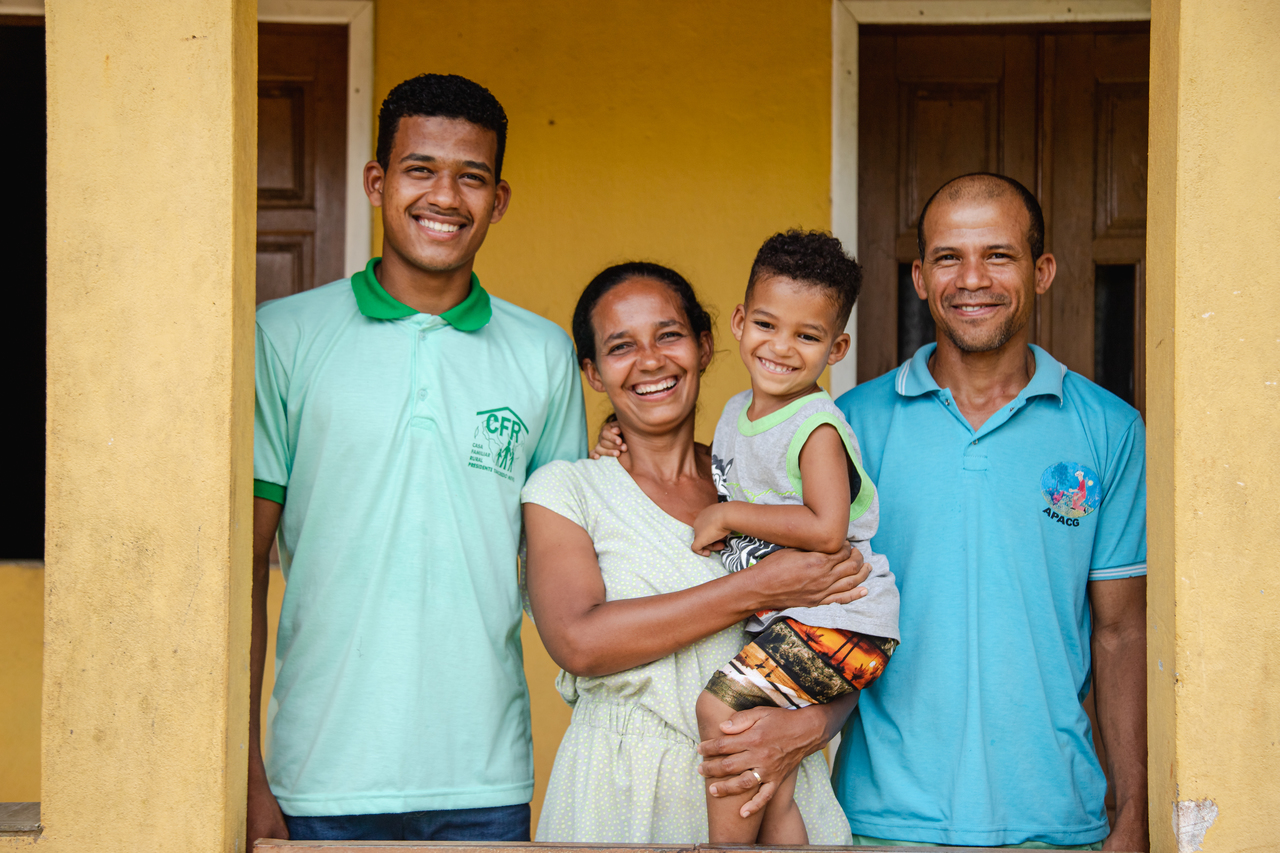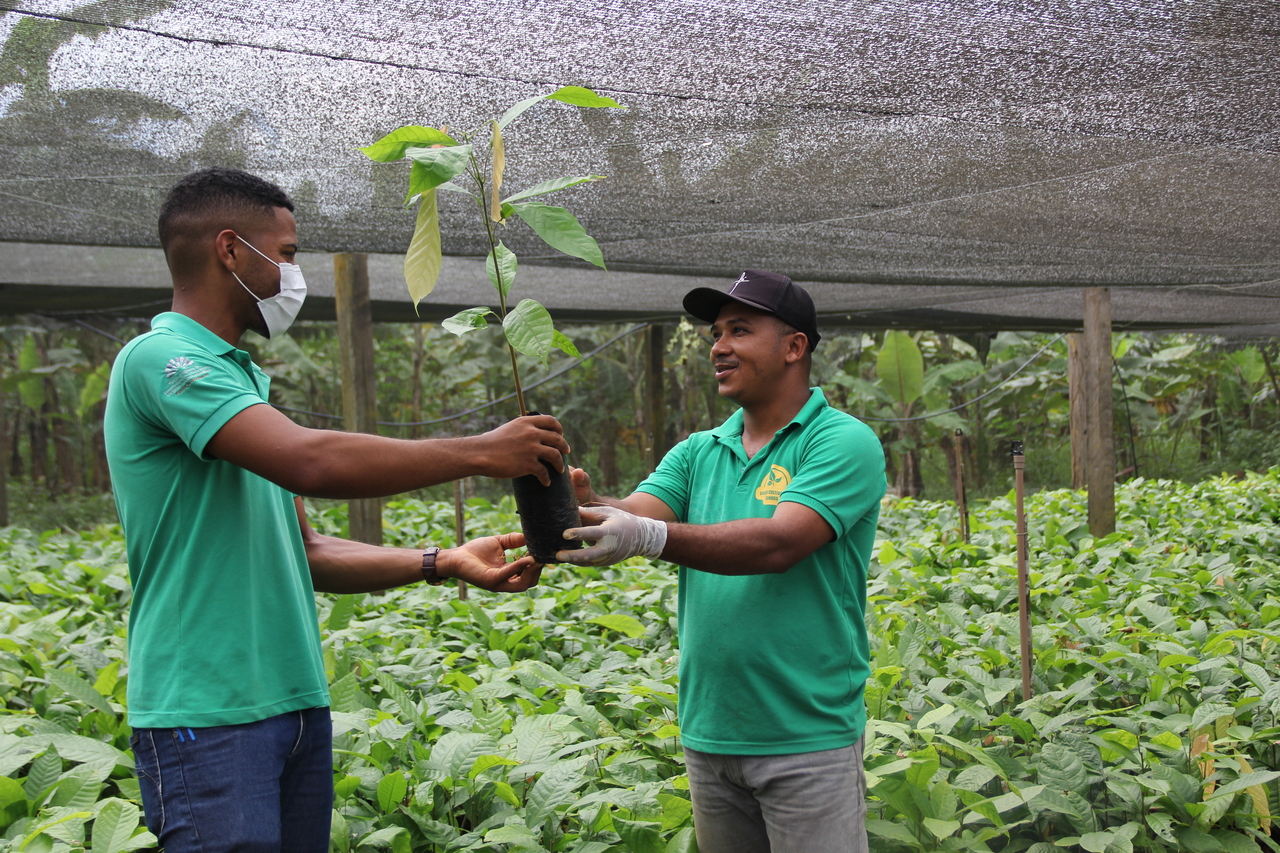Contributing to expanding access to the Our Culture collection, the Norberto Odebrecht Foundation (FNO) has just launched the digital...
Norberto Odebrecht Foundation releases Annual Report 2021
DATE: 07/07/2022
Learn about the results achieved by the institution’s Social Program to promote sustainable development
In 2021, with actions focused on the environmental, social and governance agenda, the PDCIS, a Social Program coordinated by the Norberto Odebrecht Foundation, has contributed to achieving 13 of the 17 Sustainable Development Goals (SDGs) – a global action plan established by the United Nations General Assembly aiming to promote a dignified life for everyone by 2030. This is one of the main highlights released today (4) with the release of the institution’s Annual Report 2021. With the PDCIS, a program run in partnership with civil society organizations (CSOs) in the Southern Bahia Lowlands, the Foundation encouraged actions to fight poverty and inequality in 182 rural communities in 18 municipalities of Bahia, and impacted more than 26,000 people directly and indirectly.

With the goal of fighting poverty and inequality, the Foundation’s Social Program works to strengthen family agriculture and rural youthIn addition to disclosing the results achieved last year, the Norberto Odebrecht Foundation’s Annual Report highlights the organization’s paths to take its social technology, created in 2003, to more places. “We have not only strengthened our roots and operations in the Southern Bahia Lowlands, a region where the program has been promoting a true transformation in people’s lives for almost 20 years, but we also have focused our efforts on identifying other municipalities with social vulnerabilities, agricultural vocation as their main economic activity, and commitments to the sustainability agenda, providing a model for fostering local sustainable development,” explains Fábio Wanderley, the Foundation’s superintendent, in the publication’s preface.
“The goal is to create real networks composed of social investors, civil society organizations, public authorities, and communities with which we can act, strengthening institutions and transferring our social technology,” summarizes Cristiane Nascimento, responsible for Sustainability, Partnerships, and Communication at the Norberto Odebrecht Foundation.
Contribution to the SDGs
In 2021, the actions of the Social Program coordinated by the Foundation represented direct support to 13 SDGs and 34 of the 169 global goals that make up the 2030 Agenda, practices that still connect with ESG – Environmental, Social and Governance – commitments, reflecting an action to fight poverty and inequality.
In the environmental dimension, for example, the Program has guaranteed the planting of almost 200 thousand trees and the preservation of 248 hectares of native Atlantic Forest biomes, besides the installation of 45 septic tanks, a tool that improves the sanitary sewage conditions in rural properties without access to sewage treatment system. Together, these indicators contributed to SDGs 3 (Zero Hunger and Sustainable Agriculture), 6 (Safe Water and Sanitation), and 15 (Life on Earth).
In the social dimension, the contribution to SDG 4 (Quality Education) is evident when we highlight that the three rural schools, which are partners with the PDCIS and associated to the PEA-UNESCO, ended the last year with an excellent school concept. According to data from 2020, 76% of the graduates remained in the countryside, working in agriculture and cattle-raising – a result that directly contributes to SDG 8 (Decent Work and Economic Growth) and goal 8.6, focused on reducing the number of young people without employment, education or training.
Furthermore, the joint action of the Foundation and partner institutions in carrying out the PDCIS has generated increased income for the beneficiaries and advances in gender equity (SDG 5): the number of girls enrolled in the partner rural schools represented a total of 48%. Furthermore, 40% of the organizations’ staff members are women, and 51% of the leadership positions are held by women.
Efforts to promote the fight against poverty and inequality also showed results in the governance dimension. In 2021, the PDCIS supported the inclusion of 125 beneficiaries in public policies for fomenting and strengthening agriculture and sustainable development, as well as mobilized the integration of 156 families in local associations or social-productive groups. Another highlight is the regularization of more than 150 properties in the State Forest Registry of Rural Properties (CEFIR) with the support of the Program’s partner institutions.
Partnership with organized civil society

The Foundation strengthens its partner institutions to drive social impact actions
The Annual Report also highlights the cooperation between the Norberto Odebrecht Foundation and its partner institutions. Not until 2021, 30,000 hours were dedicated by the Foundation’s team to strengthen these CSOs in management areas: Finance, Personnel, Planning, Governance, Compliance, Monitoring and Evaluation, Fundraising, Partnerships, and Communication.
In the Compliance area, for example, the Foundation’s team works together with the partners’ teams to ensure the transparency and efficiency of internal processes. “This strengthening makes a difference. It helps ensure that our Social Program is transparent to partners and social investors and efficient to the benefited communities”, explains Beatriz Lepikson, Personnel, Compliance and Finance at the Norberto Odebrecht Foundation.
One of the main ways to ensure this strengthening is through a Planning Cycle, a practice that encompasses supporting the construction of the institutions’ Action Programs and an annual follow-up, where is verified what is being done, pointing out what needs to be improved and supporting actions and strategies to reach and exceed goals. The effectiveness of the Social Program is measured from this practice, having reached 98% in 2021. “This makes the PDCIS increasingly recognized by large partners for its ability to promote positive change,” says Beatriz.



No comments